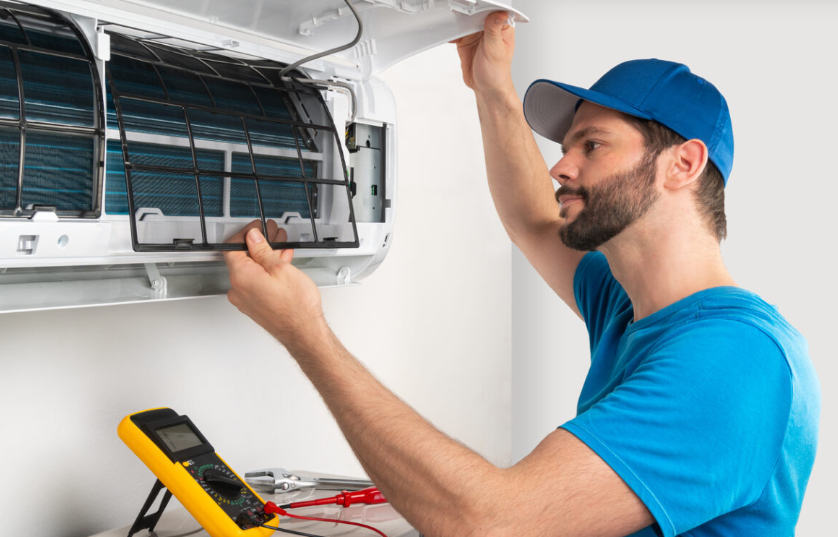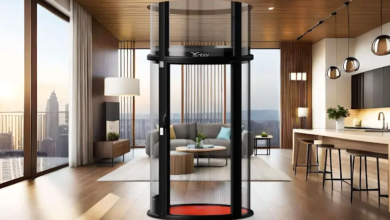Heat or Chill, Keep It Still: Smart HVAC Maintenance Tips

Your HVAC (Heating, Ventilation, and Air Conditioning) system is one of the most important components of your home. Whether it’s heating your home in the dead of winter or cooling it on a sweltering summer day, a well-maintained HVAC system keeps your living space comfortable and energy-efficient. However, like any mechanical system, your HVAC needs regular upkeep to perform at its best.
Here are smart HVAC maintenance tips to keep your system running smoothly and your utility bills in check—so no matter the season, you can keep it still, not stressed.
1. Change the Air Filter Regularly
One of the easiest and most effective ways to maintain your HVAC system is to replace the air filter every 1 to 3 months. A clogged filter restricts airflow, making the system work harder to maintain your desired temperature. Not only does this increase energy consumption, but it also places unnecessary strain on the unit.
Tip: If you have pets, allergies, or live in a dusty area, check your filters more frequently.
See also: Translation Services for US Startups Going Global
2. Schedule Annual Professional Tune-Ups
Much like your vehicle, your HVAC system requires routine inspections to stay in top shape. Scheduling professional maintenance at least once a year—preferably in the spring for your cooling system and in the fall for heating—helps ensure everything is running smoothly and efficiently before the seasons shift.
During a typical service visit, technicians will:
- Inspect and clean evaporator and condenser coils
- Check refrigerant levels and recharge if needed
- Lubricate moving components to reduce wear
- Tighten electrical connections for safety and performance
- Test system controls for proper operation
- Inspect and, if necessary, replace worn vacuum pump parts to maintain proper suction and system integrity
This kind of preventative maintenance not only helps catch potential issues early but also extends the overall lifespan of your HVAC equipment.
3. Keep Vents and Registers Clean and Unobstructed
Your HVAC system relies on a network of ducts, vents, and registers to distribute air evenly throughout your home. Blocked or dirty vents can disrupt airflow and temperature regulation.
Make it a habit to:
- Dust and vacuum vents regularly
- Ensure furniture or curtains aren’t covering registers
- Inspect for signs of mold or mildew, especially in humid areas
Better airflow means better performance—and a more comfortable home.
4. Don’t Ignore Strange Noises or Odors
If your HVAC system starts making unusual noises (like rattling, banging, or hissing) or emitting strange smells, don’t ignore it. These can be early warning signs of mechanical issues, electrical problems, or mold build-up. The sooner you address them, the less likely you are to face a costly repair or system failure.
5. Install a Programmable Thermostat
A programmable or smart thermostat is a small upgrade with a big payoff. It allows you to control your HVAC usage more efficiently by setting schedules that align with your daily routine.
Benefits include:
- Reduced energy usage when you’re away
- Better comfort control
- Long-term savings on utility bills
Some smart thermostats even alert you when maintenance is needed or if the filter requires changing.
6. Seal and Insulate Ductwork
Poorly sealed or insulated ducts can waste a significant amount of energy—up to 30% in some cases. Leaks reduce efficiency and can cause hot or cold spots in your home.
Have your ductwork inspected and sealed by a professional, or use foil tape and duct mastic to seal accessible leaks. Insulate ducts that pass through unconditioned spaces like attics or basements to prevent energy loss.
7. Keep the Outdoor Unit Clean
Your system’s outdoor unit, or condenser, needs breathing room to operate effectively. Leaves, dirt, grass clippings, and other debris can accumulate around it and restrict airflow.
Maintenance tips for the outdoor unit:
- Clear a 2-foot radius around the unit
- Trim back shrubs and plants
- Rinse the unit with a garden hose every few months (never use high pressure)
A clean condenser equals better heat exchange and energy efficiency.
8. Monitor Energy Bills for Sudden Spikes
If your energy bill suddenly increases without a change in usage, it could signal an underlying HVAC issue. Sudden inefficiency may be caused by low refrigerant, a dirty coil, or failing components. Addressing these problems early can save you money and prevent system strain.
9. Know When It’s Time to Upgrade
Even with proper maintenance, HVAC systems don’t last forever. Most systems have a lifespan of 10–15 years. If you’re facing frequent repairs, uneven temperatures, or climbing bills, it may be time for an upgrade.
Today’s energy-efficient systems use less power and often come with advanced features that improve comfort and reduce costs.
Final Thoughts
Smart HVAC maintenance is about consistency, awareness, and a little professional help now and then. By keeping your system in peak condition, you’ll enjoy year-round comfort, fewer repairs, and lower energy bills. Whether you’re battling the heat or braving the cold, remember: heat or chill, keep it still—with smart, proactive HVAC care.




